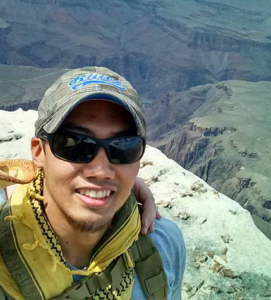
Richard Canevez began his CIFellowship in January 2021 after receiving his PhD from Pennsylvania State University this past October. Canevez is currently at the University of Hawaii at Manoa under the mentorship of Professor and Communication Information Science Graduate Chair, Jenifer Sunrise Winter.
Current Project: Advocate’s Toolbox
As an American, none of us need to look very far to see evidence of the deeply set injustices in our system: racism, sexism, and economic oppression permeate our collective existence. We have seen in the past year the need for activism and protest to fulfill the potential of this nation, by speaking truth to power. We have also more recently seen the danger when an ethos of nonviolence is entirely eschewed in favor of violence. Motivation for this project is based on the hope that, by understanding what can make nonviolence as effective as possible through the building of the nonviolent activists’ toolbox, we can bring nonviolent voice to the forefront and mainstream its efficacy.
For nonviolent social movements and activism, progressing towards meaningful social justice while maintaining nonviolent discipline is a path full of challenges, yet an absolutely imperative one for social movements seeking meaningful social transformation today. My project focuses on the intersection between communication technologies and nonviolent activism and protest, and how technologies are, and can, be used to support the lofty ideals of nonviolent activism and social change. This necessitates a broad view of technologies as activities traverse a wide range of solutions to accomplish communicative goals, as well as deep engagement with activist communities, organizers, and everyday citizens speaking out for social justice.
Impact
Theoretically, my research extends sociotechnical theorizing to the way activism has evolved alongside communication technologies, but crucially extending understanding beyond purely the social media domain (which collects much of the attention in this domain, its importance notwithstanding). Perceiving the ecosystem of communication technologies highlights both advanced technologies as well as not-so-advanced technologies like walkie-talkies, painting a complex network of technology use, community-defined access, and movement objectives. This understanding also has powerful implications for activists and organizers, whose very experiences bear out these sociotechnical systems, and stand to benefit from understanding what, and how, technology can effectively support their practices.
Other Research
My research agenda broadly focuses on communities striving for justice, which in this particular research led to two parallel threads: activist technologies and tactics to manage and mitigate violent repression, and technologies for state accountability. I am also continuing to publish articles stemming from my dissertation research on Indigenous STEM education programs, an interest which I maintain today. Focusing on justice requires an adaptability to the issues that societies face on that particular day, which entails an agenda with a broad range of interest.
As one with a prior career in artificial intelligence and software engineering, I hope that the ideals of my research speak to those technologists and builders out there who wonder whether their work can truly and deeply connect with the social change they want to see in the world.









